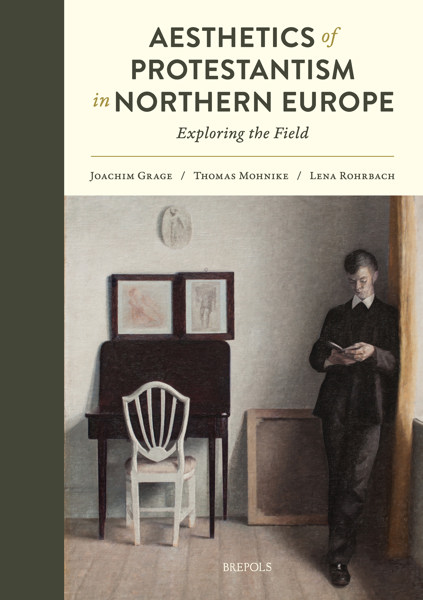
Answering the Call
Vocation and Responsibility in Scandinavian Cultures since 1750
Pehr Englén, Emmanuel Reymond (eds)
- Pages: approx. 210 p.
- Size:178 x 254 mm
- Language(s):English
- Publication Year:2026
- € 89,00 EXCL. VAT RETAIL PRICE
- ISBN: 978-2-503-62065-7
- Hardback
- Forthcoming (May/26)
- € 89,00 EXCL. VAT RETAIL PRICE
- ISBN: 978-2-503-62066-4
- E-book
- Forthcoming
*How to pre-order?
A wide-ranging survey of vocation in Scandinavian literature from the 18th to the 21st centuries.
Pehr Englén is a postdoctoral fellow at the University of Freiburg.
Emmanuel Reymond is a postdoctoral fellow at the University of Strasbourg.
Ever since Max Weber’s popularized the idea of a ‘Protestant ethics’, a close association of vocation with work has been considered a marker of Protestant cultures. In Scandinavia, it has even been mobilized to explain the countries’ industrial prowess and postwar prosperity. This volume complicates such assumptions.
With case studies drawing on Scandinavian literature from the eighteenth to the twenty-first centuries, from Ewald and Ibsen to Stangerup and Teller, from Nexø and Wägner to Ørstavik and Wærness, the eleven chapters shows how vocation is actually a multi-faceted concept. Different contexts and time periods have made sense of the responsibility a call entails in different, sometimes, opposing ways. The contributors trace the tensions bequeathed by the difference between Luther’s ‘original’ call and Pietism’s internalized one, between the needs of the neighbour and the pangs of conscience, between a duty to others and a yearning to fulfilling one’s own potential. They explore how vocation, as a literary-intellectual resource given by tradition, has been used to contest broader collective frameworks of meaning even after it lost any transcendental reference. As such this volume offers a literary history seen from the post-secular perspective of the call.
Pehr Englén (University of Freiburg) and Emmanuel Reymond (University of Strasbourg) – Introduction: The Vocational Imperative
Joachim Schiedermair (LMU München) – ‘Human Responsibility’: A Narratology of Secular Vocation in Henrik Ibsen’s Lille Eyolf (1894)
Martin Humpál (Charles University in Prague) – A Pastor without a Calling: Hanne Ørstavik’s Novel Presten
Rodrigo Edvard Araujo Silva (University of Strasbourg) – Early Swedish Working-class Literature and Social Democratic Lutheranism: Work, Class Engagement, and Solidarity as a Common Vocation in Maria Sandel’s Virveln
Søren Blak Hjortshøj (University of Southern Denmark) – Revivalism and Vocation in Martin Andersen Nexø’s Pelle Erobreren
Giovanni Za (University of Naples) – The Peaceful Development: The Mythologization of folkhemmet in Per Anders Fogelström’s Stad-serien
Dörte Linke (Humboldt University in Berlin) – Being of Benefit to the World: Vocation in the Correspondence of Emilia Fogelklou and Elin Wägner
Pehr Englén (University of Freiburg) – Vocation as Site of Conceptual Contention in Post-war Sweden: Wijkmark’s Engagement with Wingren’s Legacy
Gábor Attila Csúr (Eötvös Loránd University in Budapest) – ‘Mange er kaldede, få er udvalgte’: Secular Practices of Religious Vocation in Henrik Stangerup’s Brother Jacob (1991)
Sotirios K. Mouzakis (University of Freiburg) – ‘Vi skulle blive til noget’: The Meaning of Sacrifice and the Sacrifice of Meaning in Janne Teller’s Intet (2000)
Sarah Fengler (University of Oxford) – ‘Det væsentligste Indhold af mine Arbeider’: Johannes Ewald and Protestant Aesthetics
Emmanuel Reymond (University of Strasbourg) – The Voices of the Call: Different Dynamics of Vocation in Gunnar Wærness’s Ta på Jesus


